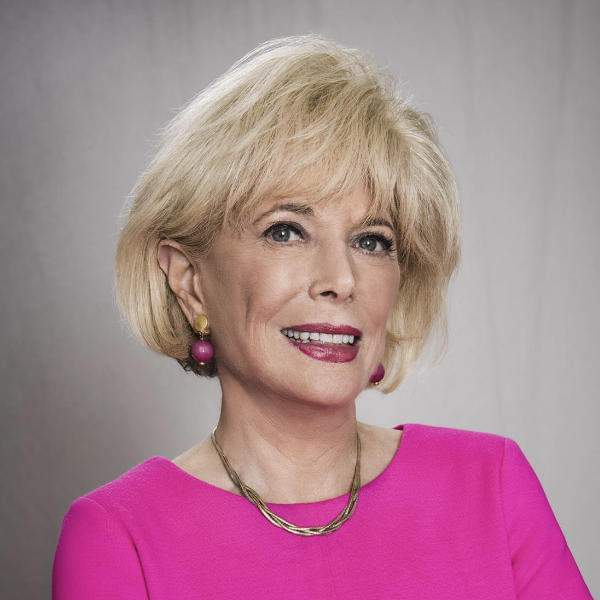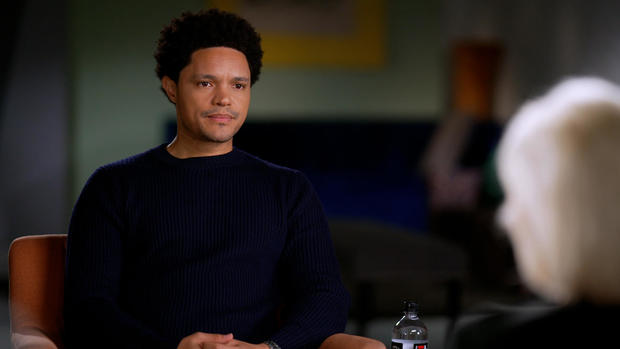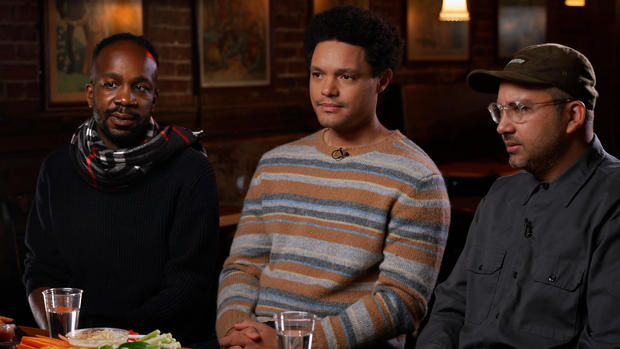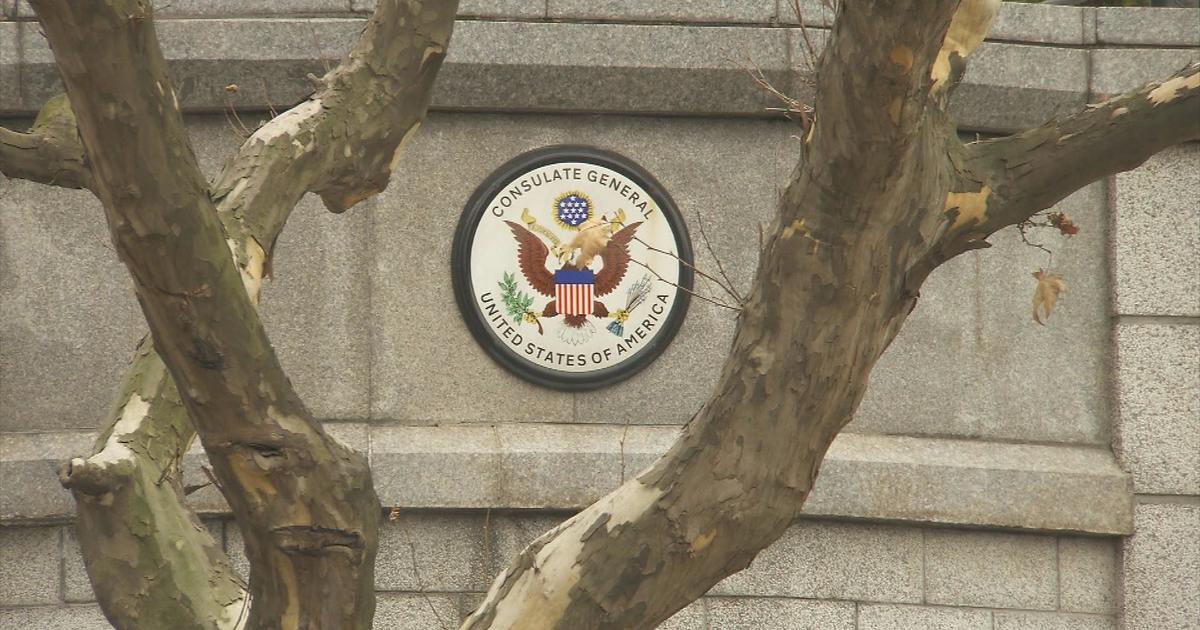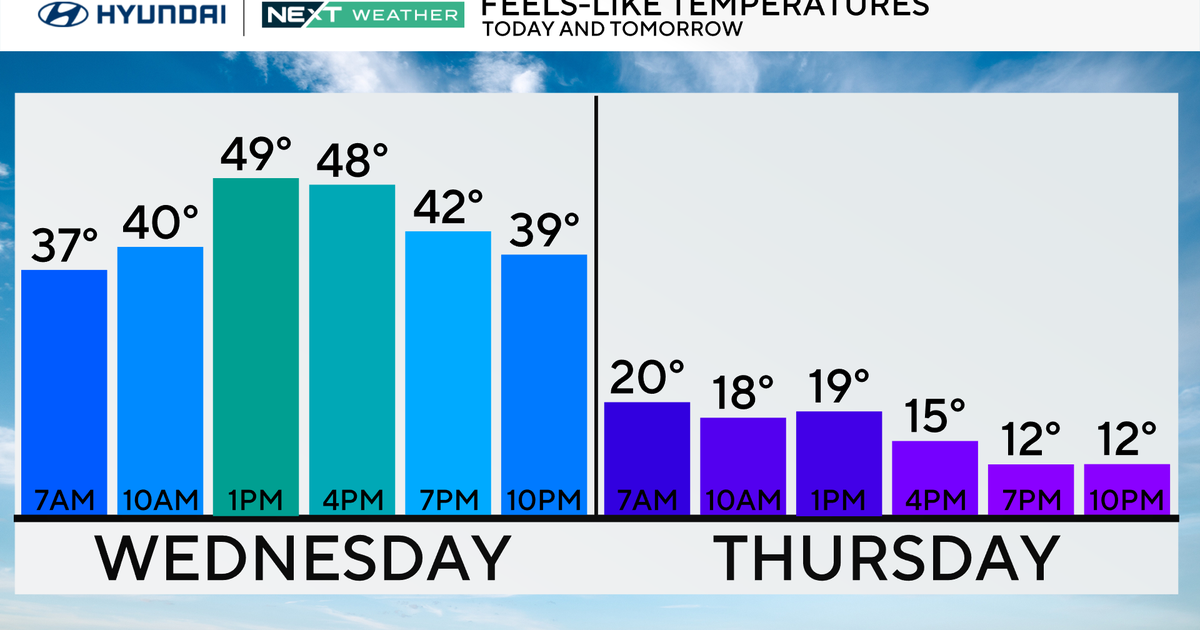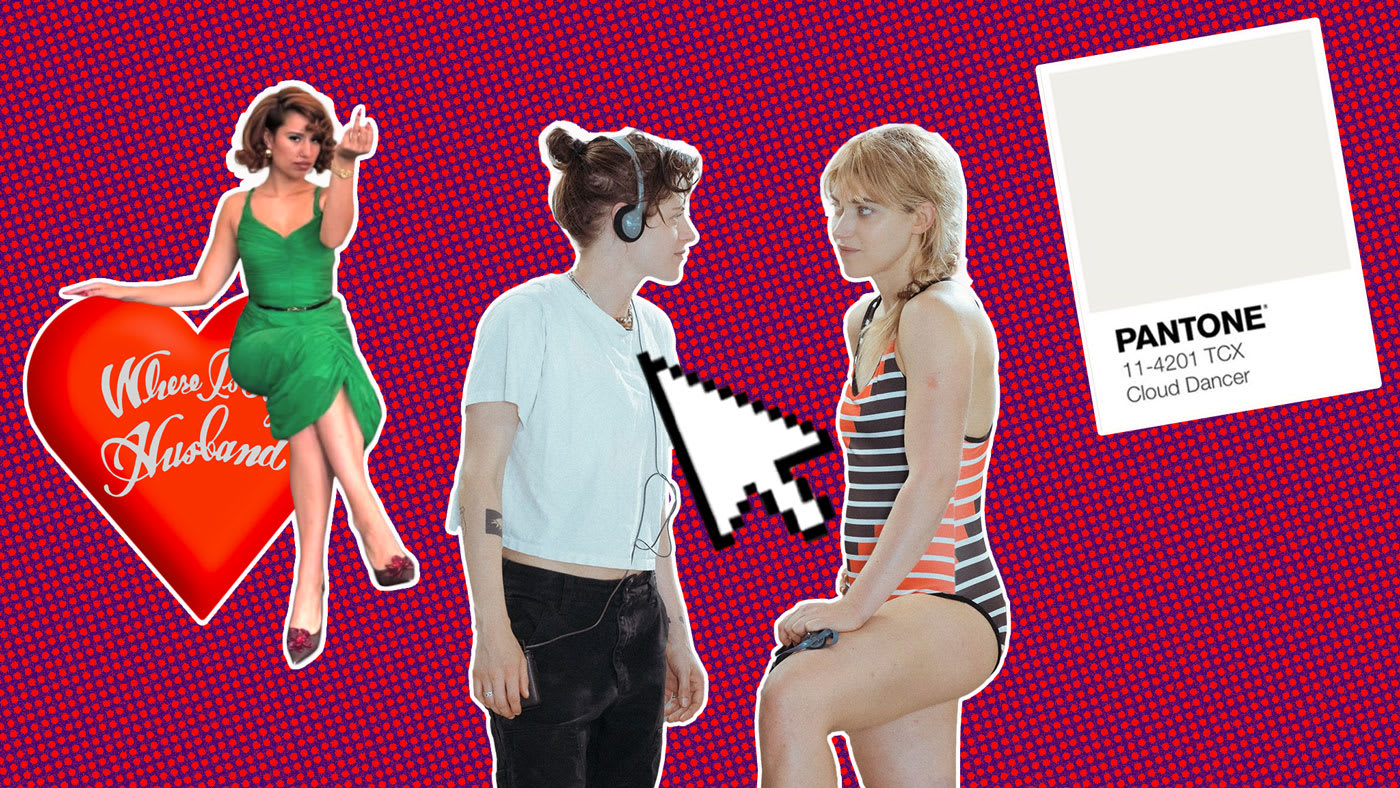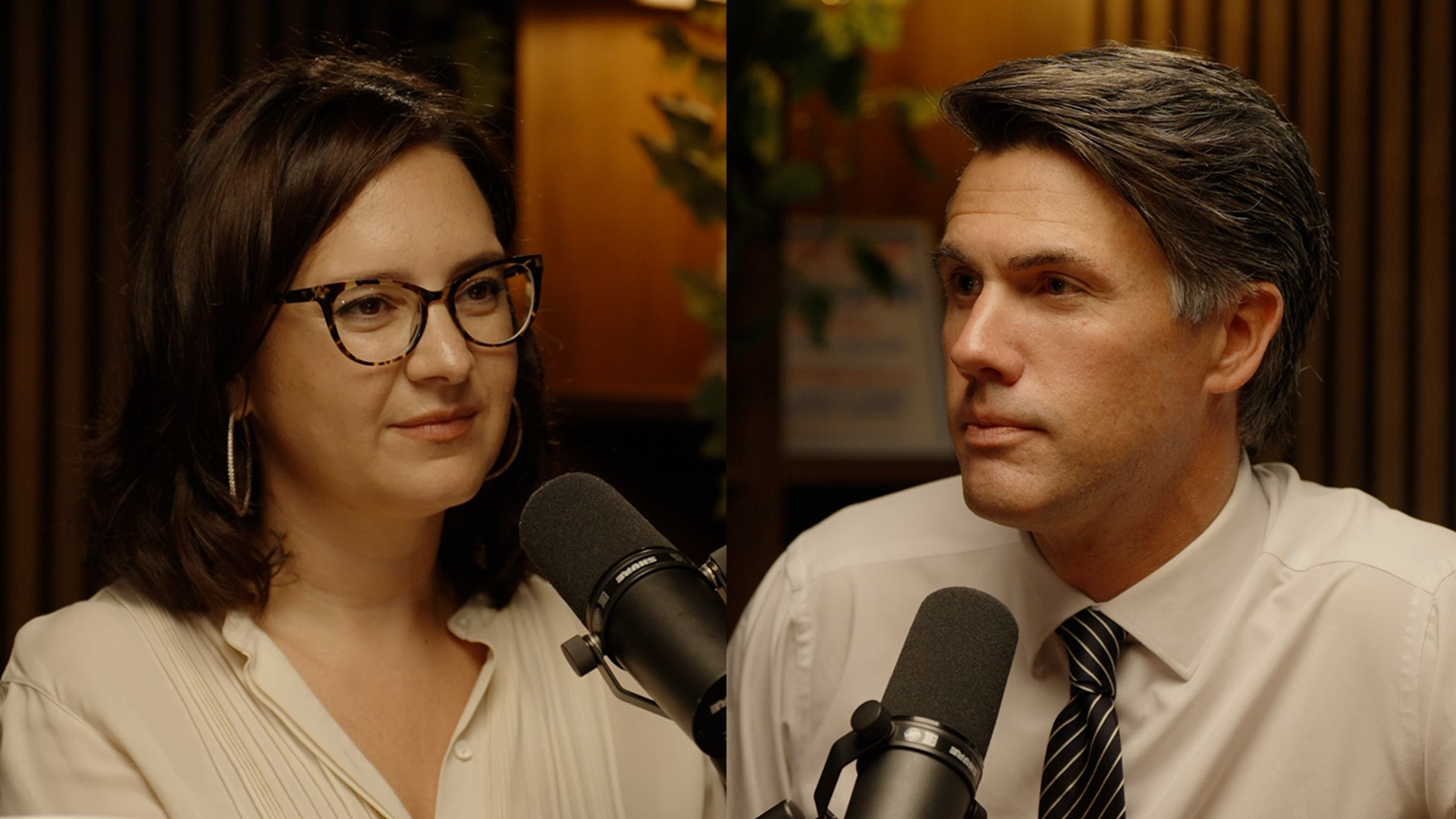Comedian Trevor Noah on humor and belonging
Look across the landscape of late-night television and you'll see that most of the hosts are White men in their 40s and 50s. Not Trevor Noah. He's biracial, he's not American and he's only 38. But he's a certified celebrity with a global following, who has brought an international dimension to Comedy Central's "The Daily Show."
He's from South Africa, where he grew up under apartheid. He called his memoir "Born a Crime," because it was illegal for a Black woman like his mother and a White man like his father to mix. As we first reported in December, Trevor says he always felt like an outsider, but his humor — making people laugh — has been his ticket to belonging.
Trevor Noah is back on tour with his comedy show in a different city practically every weekend.
Noah during comedy show: Yeah like, when you're in Texas, they'd be, like, "You got any weapons in the vehicle?" You're like, "No, sir." They're like, "All right, here's one. Here you go." (LAUGHTER) "You all have a good night now."
He loves owning the stage, the roar of the big crowd, typically 15,000 in giant arenas like one in Washington, D.C.
It's a far cry from his more confined TV studio day job on "The Daily Show," where he had a shaky start when he took over six years ago from Jon Stewart.
Noah in first episode as host of "The Daily Show": And now it feels like the family has a new stepdad and he's Black...
Lesley Stahl: Was it a good decision?
Trevor Noah: Terrible, initially. (LAUGH)
Lesley Stahl: Awful.
Trevor Noah: Don't take "The Daily Show," Lesley, when they offer it to you. Whatever you do, don't take "The Daily Show!"
Lesley Stahl: What happened in the beginning?
Trevor Noah: Oh I mean, everybody hated me. People didn't even know me and they hated the idea of me.
Lesley Stahl: But you did have a savior. Donald Trump.
Noah on "The Daily Show": Once you realize that Trump is basically the perfect African president, you start to notice the similarities everywhere.
Once he found his foil, his ratings began to improve and he realized he could connect American politics to his background in South Africa.
He grew up in Johannesburg and its Black township of Soweto during the strict racial separation regime of apartheid. He always felt like an outsider, not quite Black like his Xhosa mother, not quite White like his Swiss father, who he has seen infrequently in his life.
Lesley Stahl: To be with your father, who was White, that was a crime.
Trevor Noah: Yeah. This was the law that forbade anybody of different races from mixing.
Lesley Stahl: There's something I heard. I'm not sure I believe it. But, your grandfather used to call you master?
Trevor Noah: Yeah.
Lesley Stahl: Because of the color of your skin?
Trevor Noah: That's how he referred to me. "Master." And he'd always forced me to sit in the back of the car. Be like "Master." What can the police say if I say "the Master is sitting with me?"
Lesley Stahl: Your parents, your grandmother particularly was always afraid the police were gonna come and find you. What would've happened if they found you?
Trevor Noah: I probably would have been taken away to an orphanage.
Lesley Stahl: No.
Trevor Noah: Yeah.
Lesley Stahl: Your grandmother was always hiding you.
Trevor Noah: Yes.
Lesley Stahl: You were in lockdown.
Trevor Noah: Right. I was in pandemic before pandemic even existed.
Lesley Stahl: But you were poor. You write in your book about-- eating worms. And having a toy that was a brick.
Trevor Noah: Here's the thing that I always say to people. Being poor in a group or in a community that is poor is not as bad as being poor when you know what you're missing out on. So when I grew up, we played with bricks as cars. And you'd smash them into each other. And it was one of the most fun games I've ever played. The same thing with eating mopane worms. What I didn't like was when we couldn't eat anything else and my mom said, "We're gonna have to eat these mopane worms for longer because we don't have money to buy chicken."
Spending time indoors, he became a voracious reader. He wrote about his mother, Patricia Noah, in his memoir, "Born a Crime," saying she raised him almost as if he was White, with no limitations on what he could achieve. He wrote it was just the two of them — him and his mom — against the world. But then she married a man named Abel, who he said beat up his mother then shot her – in the head.
Noah on Stage: The head bullet didn't hit anything vital other than the head obviously, but it missed her spinal cord, missed the nerves. Didn't touch the brain and all it did was it cut a piece of her nostril off. Just, just one side and the bullet went out clean. And my mom looks at me and she goes, "Shh Trevor, Trevor, don't cry baby." I said, "No mom, I'm gonna cry. You were shot in the head." She says, "No, no, no look on the bright side." I said, "What bright side?" She says: "No, at least now because of my nose you're officially the best looking person in the family."
Lesley Stahl: You did say, you had the Black world and you had the White world, and this is a quote from you: "All I wanted to do was belong."
Trevor Noah: Everybody wants to belong. Half of our fights in life are because we want to belong. And so I grew up in a country where I was told that your belonging was defined by the shade of the color of your skin. And that never worked for me. You know? I found my greatest joy was with the people where we shared interests. And the way we spoke, and the way we laughed. Et cetera. So I always wanted to belong. And-- and that-- that, I think, has been a gift and a curse in life.
Lesley Stahl: I have a funny feeling that you did belong, because you were funny.
Trevor Noah: Funny is something that I developed as a tool, yeah, to belong.
He was funny, back in Johannesburg, but became a professional comedian by accident when he was 22 and took the stage at a comedy club on a dare from his cousin.
Trevor Noah: Yeah, you laugh, but it's true because I'm like mixed you know? I've got a percentage share. It's that type of thing.
He killed it, gave up his plan to go to college, and soon was touring all over the world as a standup comic. According to Forbes, he's one of the highest-paid comedians today. He first started touring the United States in 2011 and a year later.
Noah on "the Tonight Show": From the time I was a young child, I've always wanted one thing. And that is, I've always wanted to be Black.
He was on "The Tonight Show" and caught the attention of Jon Stewart's producer at "The Daily Show," a ViacomCBS property. When he was eventually offered the host chair, he said it would have meant taking a pay cut and giving up his life on the road. So, Stewart had to talk him into it.
Trevor Noah: He said, "I'm not offering you the glitz and glam of your life. I'm offering you a home for a while that I think you'll come to enjoy." That intrigued me. I was like, I've always wanted to have home. I've always wanted to belong. And so I thought, "Well, this could be the—this could be the chance."
And the chance to weigh in on serious topics. When COVID hit and he was broadcasting from his apartment, nearly 11 million people watched his monologue on race and George Floyd.
Noah on "The Daily Show": There was a Black man on the ground in handcuffs and you – you could take his life, so you did. Almost knowing that there would be no ramifications.
Lesley Stahl: And it wasn't funny. And now we have a new dimension to Trevor.
Trevor Noah: I guess. I guess you've seen a different dimension to Trevor. I've always had the different dimension.
Lesley Stahl: Well. You showed it to the public.
Trevor Noah: That-- that's true.
Lesley Stahl: Some of the funniest people we know on the planet have depression. You come to mind.
Trevor Noah: Well, I think over the years, what I've come to learn, thanks to some great therapists, is my depression is created by a severe level of ADHD.
Lesley Stahl: ADHD looks like depression? What do you mean?
Trevor Noah: So it can be different for different people. I'm not-- you know? But, like, so for myself, it means that if I'm not careful in how I sleep, how I eat, how I-- how I manage my routine I can become overwhelmed and it can just feel like the whole world is just too heavy to bear.
Lesley Stahl: You said something that sticks with me. You said it wasn't until you came to the United States that real hate started coming at you.
Trevor Noah: Oh yeah, definitely.
Lesley Stahl: What was the hate that you felt? Any– Did the cops ever stop you?
Trevor Noah: I've been pulled over quite frequently by the cops, yeah. One of my best friends, David Meyer. You know? We'd drive all over the west coast to these comedy shows. If I was driving we would get pulled over. And then he would drive—
Lesley Stahl: And if he was driving?
Trevor Noah: we wouldn't get pulled over.
Lesley Stahl: But you did say you experienced hate.
Trevor Noah: Yes, but I mean, that's-- that's welcome to America you know.
Lesley Stahl: Ooh... that's harsh.
Trevor Noah: Yeah. There's a lot of hate in America because there is a lot of anger in America.
Lesley Stahl: How is it changing you?
Trevor Noah: For me, I'm always trying to figure out how do I speak to somebody who hates me.
Trevor Noah: This is where we are for now.
Because of his childhood, growing up between two different worlds, he tends to see both sides of an argument.
Take his reaction to the trouble his friend, comedian Dave Chappelle, got in over his Netflix special, "The Closer."
Dave Chappelle in "The Closer": We Blacks we look at the gay community…
That was criticized as homophobic, transphobic and misogynistic.
Lesley Stahl: In your mind, did he cross the line?
Trevor Noah: Did Dave Chappelle cross the line? Yes, no. It immediately puts me in a position where I have to choose a side when I think that the matter is a lot more complex than that. I think everybody is defining the line for themselves.
Lesley Stahl: No. Society defines the line.
Trevor Noah: You see what you're saying now is you're saying society has decided. But America is clearly divided in that half of society has gone like, "No, Dave Chappelle, we love what you said. We're sick of wokeness. We're sick of people being told what to say. We're sick of not knowing how to use the right pronoun. You're right, Dave Chappelle." So then if half of society is saying Dave Chappelle is right and half of society is saying that he's wrong, then that means there is no line. It means society is seeing the line from two different sides. And so that's why I say you cannot say did he cross the line because which side are you looking at the line from defines whether or not he crossed it.
Lesley Stahl: Are you still learning things all the time?
Trevor Noah: Yes. Yes.
Well, he's had to learn about New York City, his new home since 2015. Buy an apartment here, make new friends.
Lesley Stahl: Let me ask you about your personal life for a minute. Do you want to have children?
Trevor Noah: I-- I go back and forth. Sometimes I will meet kids who make me go, "I want a kid." And then sometimes I'll meet children where I go, "I hope that my sperm doesn't do anything because this person is a terror."
Lesley Stahl: You're 37. You're right there. That's the clock. It's ticking.
Trevor Noah: Okay.
Lesley Stahl: But you don't feel it?
Trevor Noah: No, I don't.
Lesley Stahl: You have a girlfriend now?
Trevor Noah: Maybe.
Lesley Stahl: Well, I read Page Six like everybody else in this world.
Trevor Noah: Oh, Lesley, oh, the tabloids.
Lesley Stahl: The tabloids--
Trevor Noah: No--
Lesley Stahl: You don't like to talk about your-- girlfriends?
Trevor Noah: No.
Lesley Stahl: What is Trevor like with his girlfriends?
Trevor Noah: It's a trick. You don't have to answer that question.
Trevor introduced us to comedy producer Ryan Harduth and comedian David Kibuuka, now a supervising producer on "The Daily Show." They're among his oldest friends from South Africa.
Trevor Noah: No. You don't have to answer any questions about personal--
David Kibuuka: Really?
Trevor Noah: relationships.
Lesley Stahl: Who told you that?
Trevor Noah: Okay, what is Mitch McConnell like with his girlfriends? Do you know the answer to that question?
David Kibuuka: I don't know.
Trevor Noah: Exactly.
David Kibuuka: 'Cause he didn't answer it.
Trevor Noah: Because they don't even ask him.
David Kibuuka: And also 'cause people don't want to know.
David Kibuuka: This is what I'll say about Trevor with his girlfriends is that--
Trevor Noah: So you're just fully going ahead with this?
David Kibuuka: Yeah. Yes.
Lesley Stahl: Of course he is.
Trevor Noah: Wow. Ok.
Lesley Stahl: Of course he is.
David Kibuuka: Is that he is very, very -- like a great boyfriend. (laughs)
Lesley Stahl: So what are the qualities that you like most about Trevor?
Ryan Harduth: He's a great boyfriend. (laughs)
Trevor told us he hangs out with these guys often and he talks with his mother everyday, things he says that keep him grounded.
Lesley Stahl: Is he a perfectionist?
Ryan Harduth: No. Yeah I wouldn't say he is a perfectionist.
Lesley Stahl: No? Workaholic?
David Kibuuka: Yes.
Ryan Harduth: Yes. I would say so.
David Kibuuka: 100%.
He sure is.
Even though he does "The Daily Show" during the week and has hosted the Grammy awards for the past two years, he refuses to give up his comedy shows.
Noah during comedy show:
Genuinely, I just love the feeling of a laugh. I think, I think when we laugh as human beings, that's when we're-- we're our most authentic selves. That's why your real laugh is so ugly, do you know what I mean? It's not filtered in anyway, it's-- (LAUGHS) I love that. It's, like, pure joy. Forget what people think. Just laugh, you know? We need it. Every single day. Every single day.
Produced by E. Alexandra Poolos. Associate producer, Collette Richards. Broadcast associate, Wren Woodson. Edited by Joe Schanzer.
